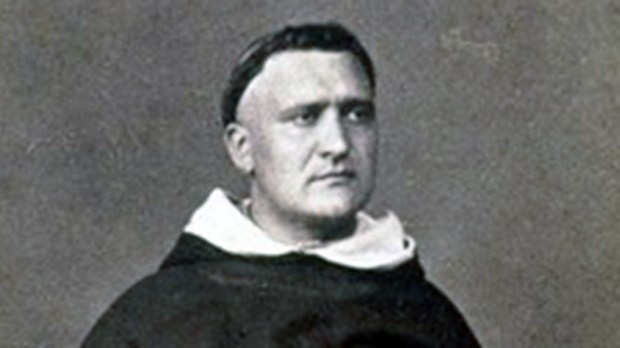Alcide-Vital Lastaste was born in Gironde, France, on September 5, 1832. As a teenager, Alcide felt a call to the priesthood, but as is the way of adolescence, sometimes there can be distractions. Alcide began courting a young lady named Cecilia de Saint-Germain while attending secondary school.
Cecilia and Alcide soon declared their love for each other and planned to get married as soon as possible. However, Alcide’s father, Vital, thought the couple was too young to be getting so serious. He voiced his great displeasure at their deep involvement, and the couple agreed to not see each other for a year. Incredibly, during that year, Cecilia suddenly passed away. The young man was heartbroken.
Alcide turned to his young faith for comfort. He joined the St. Vincent de Paul Society, and the visits to the downtrodden and homeless opened his eyes to the plight of the poor. At the same time, the call to the priesthood once more erupted within him. In 1857 he entered the Dominican Order. Alcide was ordained a priest on February 8, 1863, and took the name Jean-Joseph. His unexpected spiritual journey was about to take flight and reach heights no one could have ever imagined.
On September 15, 1864, after being a priest all of 18 months, Father Jean-Joseph Lataste was sent by the prior of the monastery in Bordeaux to conduct a four-day retreat for the inmates of a woman’s prison in the town of Cadillac. This experience would change his life forever.
Suddenly he found himself amid 400 women prisoners, most of them abused and abandoned with nowhere to go. In most cases, these women were poor, uneducated, and without family. Living on the streets forces one to live in survival mode. That means stealing and soliciting and doing whatever one must do to breathe another day. They had been discarded and treated like criminals. This was 1864, and they fit the cliché “out of sight, out of mind.”
The atmosphere of hopelessness and despair at the prison was overwhelming. He wondered what he could do for these women who were often called “the lost women.” Would they even sit and listen to him? He was frightened of the possibilities, but he was also filled with faith.
Father Jean-Joseph stood before the women, stretched out his arms, and began, “My dear sisters –” That was shocking in itself because no one ever truly spoke to these people. Dogs and cats were treated better. His gentle, brotherly greeting got their attention. He spent the next few days guiding them to a special place. It was a place where Hope existed. They had forgotten what that even meant, if they’d ever known at all.
He introduced them to God’s infinite mercy by telling them about the woman caught in adultery and how Jesus forgave her. He spoke about Hell and conversion and embracing freedom. He shared with them the Real Presence of Christ in the Holy Eucharist, and lastly, he spoke to them of Heaven. He could not believe how many women embraced the offer of forgiveness and began going to Confession. The chapel was filled each evening for Adoration of the Blessed Sacrament. His own heart became filled with a new purpose. He wanted to begin a ministry to serve these women.
The women asked that he come back, and one year later he did just that. This time there was only one sermon a day because the demand for Confession was so high. The last night of the retreat, most of the women attended Adoration. Some stayed the entire night, remaining until dawn. Using the words of St. Catherine of Siena, Father Lataste wrote in his closing notes about the retreat: “I have seen the secrets of God; I have seen the wonders.”

Read more:
Do you think of prisons like this? Check out the pope’s surprisingly hopeful outlook
From that point on, he was determined to find a way to help these women. In 1866, he wrote a pamphlet called Rehabilitated. He sent copies to as many journalists and government officials as he could. He knew that the reason so many of those being released failed was because no one trusted them or gave them the slightest chance. He was determined to reshape public opinion.
He announced his intentions of starting an order where women leaving prison could begin a religious life in a contemplative setting. This order was approved and is known as the Dominican Sisters of Bethany. The Order still flourishes and serves many women in different countries around the world.
Tuberculosis took the life of Alcide-Vital Lastaste (aka Father Jean-Joseph) on March 10, 1868. He was only 36 years old. As he died, he could be heard softly singing the Hail, Holy Queen, “Salve Regina.”
Alcide-Vital Lastaste was declared Blessed on June 3, 2012. We ask Blessed Alcide to pray for us.
~
The story of this religious order is powerfully told in a fictional novel by Rumer Godden called Five for Sorrow, Ten for Joy, which follows the life of one of the women who joined the Bethany Nuns.

Read more:
7 Books every Catholic woman should read this summer

